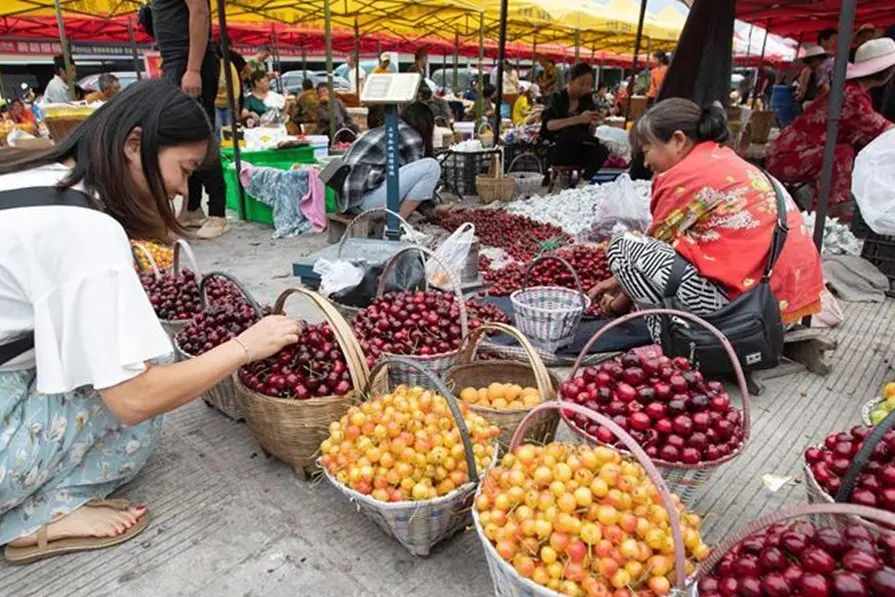The tragacanth gum is derived from the dehydrated sap of Astragalus species living in arid regions, and it is a suitable material for the production of biodegradable films.
This is possible thanks to the tragacanthin molecule, which is soluble in water, and bassorin (insoluble in water) that provide stabilizing, emulsifying, and thickening properties.
This gum is compatible with biopolymers such as gelatin, chitosan, and other polysaccharides, which enhances the functionality and durability of biofilms.
Biopolymer films and natural extracts
Furthermore, other compounds are typically incorporated into biopolymer-based systems to enhance their functionality.
For example, rose hip oil (Rosa canina L.) is rich in bioactive compounds such as vitamin C, phenolic acids, flavonoids, carotenoids, and essential fatty acids, which exhibit antioxidant and antimicrobial properties.
The study conducted at the Faculty of Engineering and Natural Sciences of Üsküdar University in Turkey examined the effectiveness of biopolymer coatings enriched with natural extracts and oils to extend the shelf life of cherries and reduce post-harvest losses.
The functional properties of biofilms developed using polyvinyl alcohol, chitosan, tragacanth, and enriched with rosehip seed oil and rosehip extract were evaluated.
Functional properties and preservation
These properties included thickness, transparency, water absorption, mechanical properties, antioxidant activity, water vapor permeability, and biodegradability.
Furthermore, their ability to preserve the quality of sweet cherries during storage under shelf-life conditions was evaluated.
The results indicate that the studied bio-coatings preserve perishable products like cherries for a longer period, offering a sustainable and biodegradable alternative.
Tragacanth gum, rose hip extract, and rose hip seed oil substantially improved the mechanical properties of the bio-film, increasing tensile strength.
Effectiveness of rosehip components
The sensory properties of the cherries were preserved, and weight loss was effectively reduced when rose hip seed oil was added to the biofilm.
When the biofilm was instead supplemented with rosehip extract, greater antioxidant properties were observed.
The results of the water vapor permeability test indicated that the barrier properties of the biofilms were substantially improved, and the water vapor permeability was significantly reduced thanks to the addition of rosehip extract and seed oil.
These coatings have effectively extended the shelf life of sweet cherries under highly stressful conditions, minimizing titratable acidity, oxidative stress, and moisture loss, as demonstrated by preservation experiments.
Sustainability and degradation rate
These results highlight the potential of biopolymer films enriched with rose hip as a sustainable and eco-friendly packaging alternative to extend the shelf life of perishable fruits.
It has also been observed that the degradation rate varies based on the concentration of tragacanth present in the biofilm.
Films with a lower concentration degrade more rapidly due to their higher water absorption, which promotes microbial activity.
On the contrary, films with a higher concentration of tragacanth degrade at a slower rate due to their greater structural stability and lower water absorption capacity.
These results indicate that preservation is possible thanks to the development of bio-films, which thus allow waste reduction along the distribution and sales chain.
Source: F. Fulya Taktak, Hatice Nur Kaya, Biodegradable PVA/chitosan-based films enriched with rose hip extract and seed oil: Investigation of the influence of tragacanth gum ratio on functional properties and its application in cherry preservation, International Journal of Biological Macromolecules, Volume 307, Part 1, 2025, 141023, ISSN 0141-8130, https://doi.org/10.1016/j.ijbiomac.2025.141023
Image source: SL Fruit Service
Melissa Venturi
University of Bologna (ITA)
Cherry Times - All rights reserved










